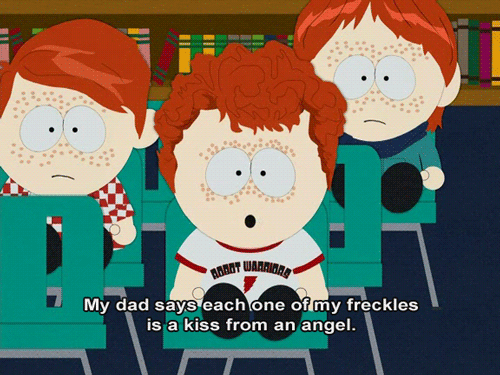
South Park / Giphy
If you Google anything long enough, you’re going to find a way to link it to either cancer or death, especially if you don’t use discretion in which articles you choose to read. This is why you should avoid looking up a list of symptoms—it’s going to tell you that you’re dying of some rare and incurable disease when you actually only have a cold. Take freckles, for instance. A quick Google search for “dangers of freckles” leads to skin cancer (no, freckles and skin cancer are not the same thing), high cholesterol (fairly certain that this is just made up), and many, many ads for freckle removal. In fact, I read the word “freckle” so many times that it stopped looking like a real word.
Caffeine, unlike freckles, can actually be dangerous in large quantities or when mixed with alcohol, so you should take care to notice and limit your caffeine intake.
What is caffeine?
Caffeine is a naturally occurring chemical that stimulates the central nervous system; it is therefore defined as a drug. It is the most commonly used drug in the world, with more than 90% of U.S. adults using caffeine regularly. It is found naturally in coffee, black tea, green tea, soda, energy drinks, and chocolate in varying levels. For instance, you’d have to eat between one and two cups of chocolate chips to get the same amount of caffeine that is found in one cup of coffee. Coffee and energy drinks have the highest caffeine content, then come soda and green tea, and finally chocolate. Even beverages that claim to be decaffeinated have residual caffeine content. Caffeine is also found in certain over-the-counter medications, like Excedrin, NoDoz, and Midol.
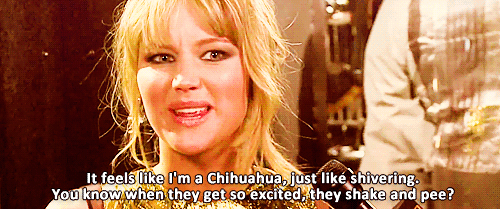
Jennifer Lawrence / Giphy
What does caffeine do?
Caffeine is a stimulant, and people regularly use it to “wake up” in the morning. Caffeine can increase an individual’s level of alertness and decrease sleepiness. When used in conjunction with a painkiller, caffeine increases the effectiveness of the medication. Many over-the-counter pain medications include caffeine as an active ingredient.
The Mayo Clinic states that ingesting 400 mg of caffeine a day is safe for adults. This is the amount that you would find in two 5-Hour Energy shots, five Red Bulls, four cups of chocolate chips, between two and four cups of coffee (depending on its strength), and more than five cups of black tea. It may seem like you would never drink that much coffee or tea in a day, but remember that a Starbucks tall is actually a cup and a half. Drinking more caffeine than is recommended as the maximum by the Mayo Clinic can result in some unpleasant side effects:
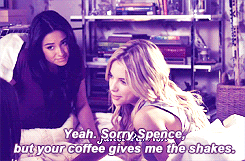
Pretty Little Liars / Giphy
- Gastric distress
- Insomnia
- Restlessness and nervousness
- Shaking
- Elevated heart rate
- Irritability
Some people, particularly those who don’t regularly drink caffeine, may find that they experience some of caffeine’s side effects even before reaching the suggested maximum. Others may not experience side effects even after surpassing the maximum. A lot of it depends on what your body is used to. If you never drink coffee and then have an espresso, you may get jittery. On the other hand, if you normally drink three cups of coffee in the morning and one morning you have four, you may not experience anything at all.
Probably the most well-known side effect of caffeine is insomnia. People drink coffee, tea, and energy drinks precisely for this reason: to wake up in the morning or get a boost during the day when they start feeling sleepy. Caffeine cannot actually replace sleep; it just temporarily blocks sleep-inducing chemicals from working.
What is caffeine withdrawal?
Here’s a personal story for you. When I was 10, my mom and my grandfather took me to London for the first time. It’s important to this story that you realize I was 10. I did not have a caffeine habit like I do today. I had tea sometimes on rainy days and that’s it. So, when I went to London and had tea at breakfast, lunch, and the aptly named teatime, it was a big change. Everything was fine and dandy until the flight home, when I was cranky, didn’t have much tea, and played enough video games that I threw up on my mother’s lap. True story. I went to bed when we got home but woke up with a raging headache. Lo and behold I was a 10-year-old with a caffeine dependence. I had to have progressively smaller cups of tea every day for a week to make the headaches stop.
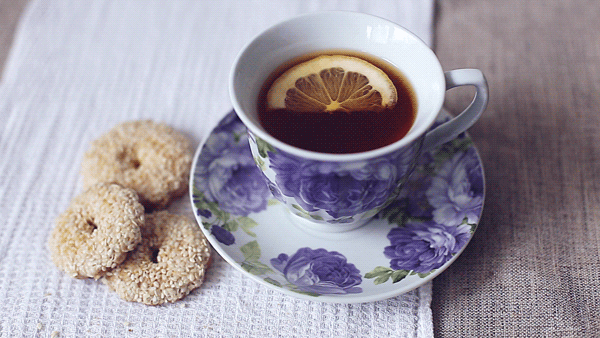
Giphy
So, the point of the matter is this: Caffeine dependence is real, and the withdrawal symptoms that come when you decrease your intake or stop drinking caffeine entirely are also very real. Withdrawal symptoms include:
- Headaches
- Sleepiness
- Depression or irritability
- Inability to concentrate
- Nausea
- Muscle pain
Can you overdose on caffeine?
Technically, yes, but it would be very difficult to drink your way to a caffeine overdose. The average man would have to drink nearly 150 energy drinks before he would overdose and die. The human stomach, though stretchy, would never be able to fit that much liquid, and the man would end up vomiting before drinking a fatal amount of caffeine. There are caffeine pills, though, which are each equivalent to about two cups of coffee. Taking more than two or three of these in a day can result in harm.
Caffeine intoxication, however, can occur when a person ingests caffeine at a faster rate than they can metabolize it. The symptoms are similar to the side effects of caffeine ingestion, but they may also include sweating, dizziness, vomiting, and heart palpitations that could lead to cardiac arrest. If you start feeling these symptoms, stop your caffeine intake immediately and call your doctor.
What if I mix caffeine with alcohol?
Caffeine is a stimulant and alcohol is a depressant. Mixing energy drinks with alcohol is not a good idea, because the caffeine masks the depressant properties of alcohol and makes it so that you don’t necessarily feel how much alcohol you’ve consumed, leading to binge drinking. The CDC states that people who mix caffeine and alcohol are three times more likely to binge drink and twice as likely to be a victim or perpetrator of sexual assault than those who don’t mix their beverages.
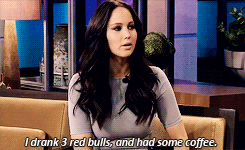
Jennifer Lawrence / Giphy
Caffeine and alcohol both also cause dehydration. A person who is dehydrated and continues to drink will continue to become more dehydrated because his or her urine output will increase with nothing to replace it. This can lead to alcohol poisoning, a severe reaction to alcohol that requires immediate medical attention.
What’s the takeaway?
It’s perfectly okay to have caffeine whenever you want it provided you aren’t experiencing any adverse effects, but use it in moderation. If you go out to a party, stick to either caffeine or alcohol, but don’t mix and match.
-
¿Dónde está tu motivación al despertar?
-
The Importance of Physical Education and Exercise
-
Should I Take the Student Health Insurance or Stay on a Parent’s Plan?
-
Six Ways to Cope if You’re Feeling Overwhelmed in College
-
Eight Ways to Stay Fit during the Winter Months without Hitting the Gym
-
Why Making Time for Relaxation Is Healthy
-
Everything You Need to Know about Mono
-
Six Yoga Poses to Help with Anxiety and Panic Attacks
-
How to Recognize Cyberbullying
-
Seizures and Seizure Disorders
-
How to Respond to Cyberbullying
-
The Sleep-College Relationship

